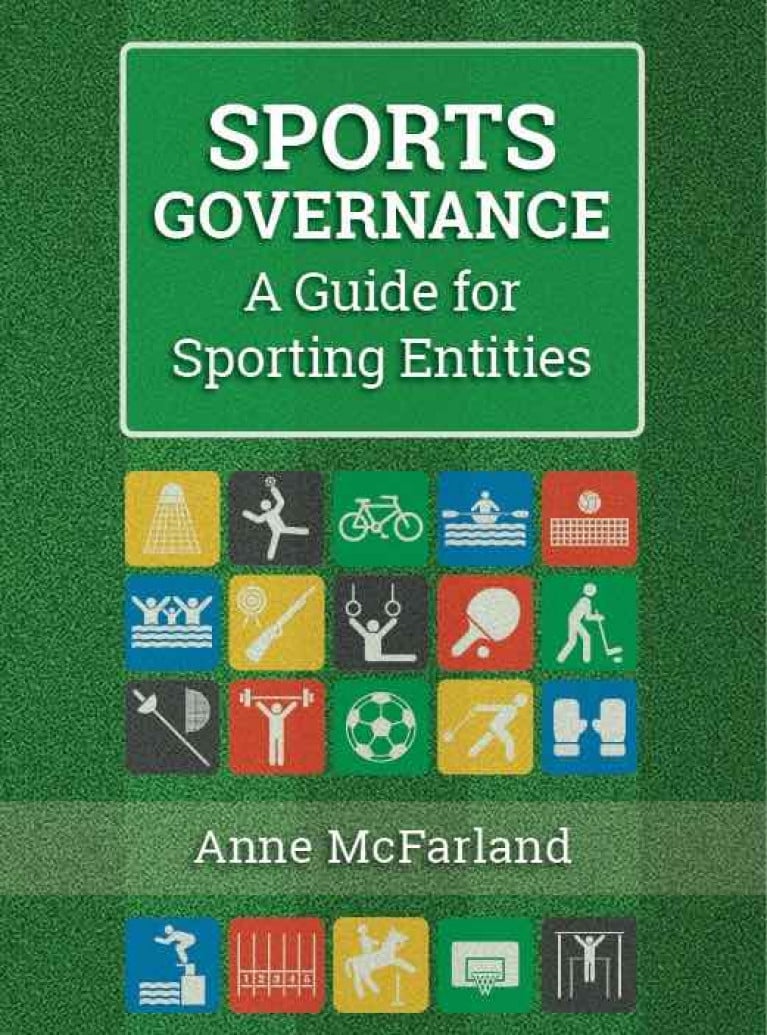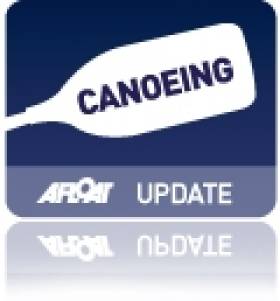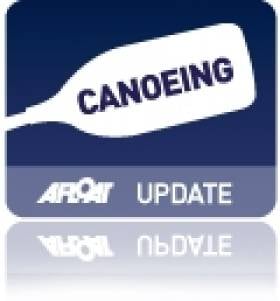Displaying items by tag: Irish Canoe Union
New Book on Sports Governance Launched
Running a sports body has become increasingly onerous. Many sporting entities have become companies and now need to abide by the Companies Act. All entities funded by Sport Ireland must comply with a code of governance, adopted by Sport Ireland, by the end of 2021. In recent years, the sporting world has been rocked by controversies both internationally and here in Ireland, which have had significant repercussions. It is now more essential than ever that all sporting entities, big and small, need to focus on good governance.
Sports Governance: A Guide for Sporting Entities is designed to help board or committee members to understand and address governance issues. The book focuses on three main areas: firstly, an introduction to governance, with a specific look at the governance code for sporting entities and the need for governance; secondly, becoming a board member and the considerations taken by both the person and the organisation before taking on the responsibility; and thirdly the key functions of a board – strategy, risk, accountability, and monitoring. Each chapter ends with essential points for the smaller sporting entity and the club, as well as ten key points.
Sports Governance: A Guide for Sporting Entities is essential reading for anyone involved in running a sporting body, large or small. It will also be of interest to policymakers and auditors. It is available from www.orpenpress.com and all good bookshops for €20.
Anne McFarland is a chartered accountant with a Diploma from UCD in Corporate Governance and a Diploma from the Law Society in Sports Law. She has been a finance director of multinational organisations for many years; she lectures on corporate governance and enjoys working with sporting entities, big and small, to develop strategy and improve governance. This book draws on her practical experience as a board member and as an advisor on governance, as well as her interest in sport, both amateur and professional. She is co-author of A Practical Guide for Company Directors (Chartered Accountants Ireland, 2017).
Canoeing Ireland Looking for New General Manager
#JOBS & CAREERS - Canoeing Ireland, the national governing body for canoe sports in Ireland, has a vacancy for a general manager based at its headquarters in Dublin.
The successful candidate will "lead the organisation, its members and volunteers as it continues to support and advance canoeing in Ireland over the coming years".
Aside from providing leadership to the organisation in its activities, the role involves providing support to the executive and board in developing and implementing a new strategy for Canoeing Ireland, formerly the Irish Canoe Union.
The job will also involve the provision of support to both recreational canoeists and high performance athletes, and ensuring that the body is managed and administered effectively for the benefit of all members.
The ideal candidate will hold a relevant third level qualification; have a proven track record with at least five years' work experience in a senior management position; can demonstrate experience of financial management, reporting, and budgetary control procedures; have experience in working with high performance athletes aservices providers.
Knowledge of change management and experience of co-ordinating and working with professional service providers would be an advantage.
The closing date for applications is tomorrow, Friday 11 November 2011. Interested parties can apply online HERE.
Come-And-Try Kayak Day for Special Olympics Hopefuls
Canoeing Ireland's recent come-and-try kayak day for potential Special Olympians was a success all round, according to organisers.
Hoping to emulate the success of kayakers at the recent Special Olympics Summer Games in Athens, newcomers at the Irish Canoe Union Training Centre at Strawberry Beds were kitted out with paddles, kayaks, helmets, wetsuits and flotation devices before getting to know their kayaks, learning how to paddle and playing some on-water games.
The organisers added: "By the time the athletes were ready to go home they were all tired but asking when the next session would be!"
The Special Olympics website has some photos of the day available HERE.
K1 Sprint Head-to-Head in Prosperous Next Weekend
The Irish Canoe Union will host a sprint head-to-head regatta in Kildare next weekend.
All canoeists in classes K1 200m and 500m are welcome to take part in the event, on the Grand Canal in Prosperous on Saturday 26 March starting at 10.30am.
Heats will be seeded based on previous regatta performances and personal best times. The event finals will then be decided on fastest time from heats.
Entries are open till 8pm on Wednesday 23 March. Entry forms are available via the Canoeing Ireland website.



























































